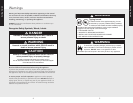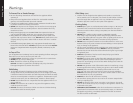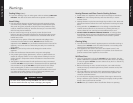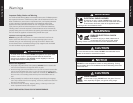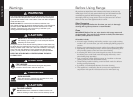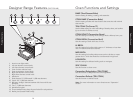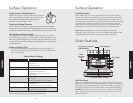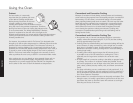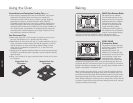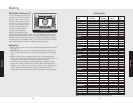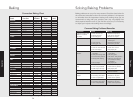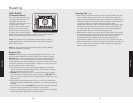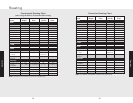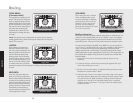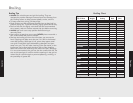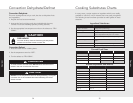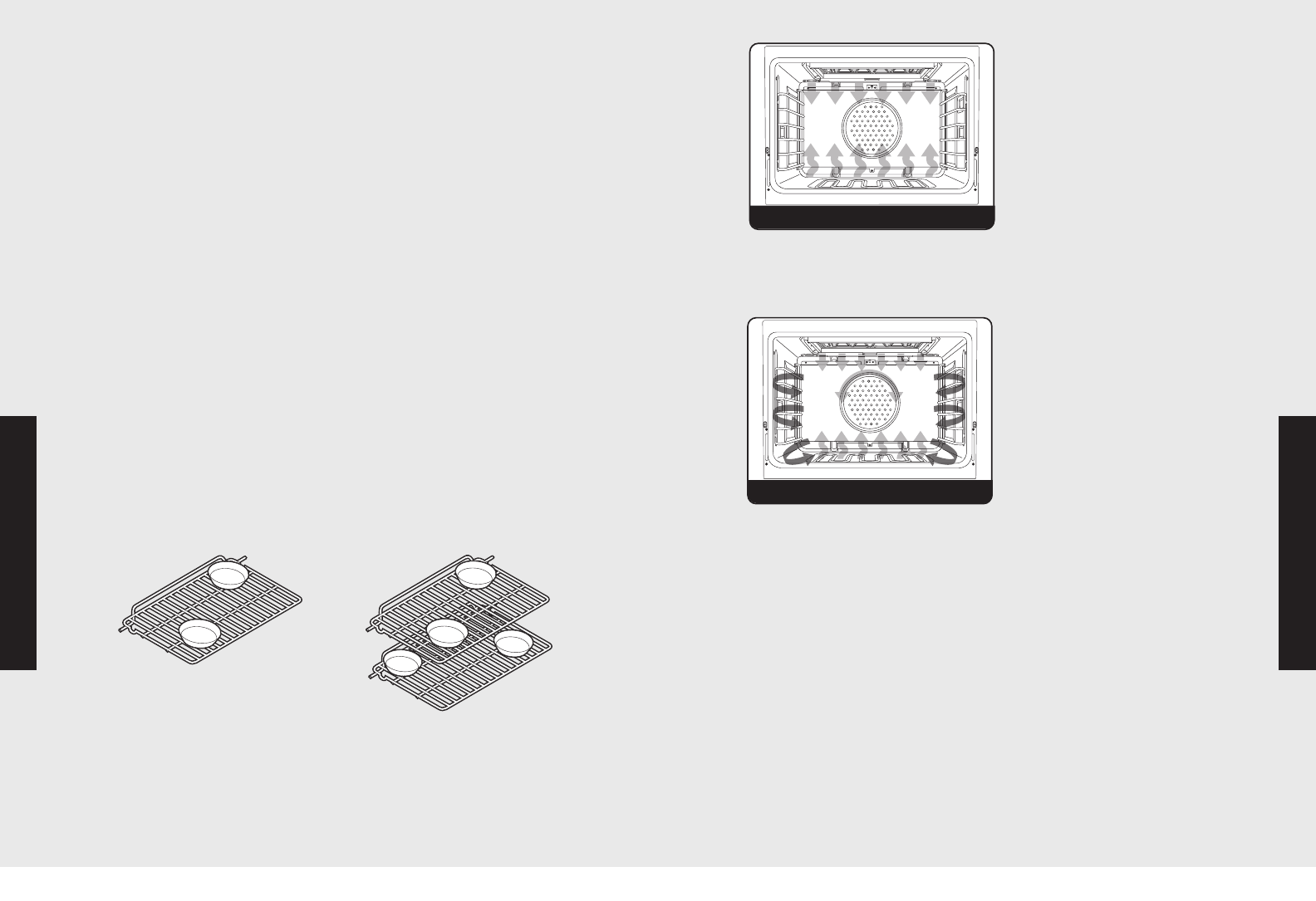
21
Baking
BAKE (Two-Element Bake)
Full power heat is radiated
from the bake element in the
bottom of the oven cavity and
supplemental heat is radiated
from the broil element. This
function is recommended for
single rack baking. Many
cookbooks contain recipes to
be cooked in the conventional
manner. Conventional baking/
roasting is particularly suitable for dishes that require a high
temperature. Use this setting for baking, roasting, and casseroles.
CONV BAKE
(Convection Bake)
The bottom element operates
at full power, and the top broil
element operates at
supplemental power. The
heated air is circulated by the
motorized fan in the rear of the
oven providing a more even
heat distribution. This even
circulation of air equalizes the
temperature throughout the oven cavity and eliminates the hot and
cold spots found in conventional ovens. A major benefit of convection
baking is the ability to prepare food in quantity using multiple racks—a
feature not possible in a standard oven.
When roasting using this setting, cool air is quickly replaced, searing
meats on the outside and retaining more juices and natural flavor on
the inside with less shrinkage. With this heating method, foods can be
baked and roasted at the same time with minimal taste transfer, even
when different dishes are involved, such as cakes, fish or meat. The hot
air system is especially economical when thawing frozen food. Use this
setting for baking and roasting.
two-element bake
convection bake
20
Conventional and Convection Cooking Tips (cont.)
• Some recipes, especially those that are homemade, may require
adjustment and testing when converting from standard to
convection modes. If unsure how to convert a recipe, begin by
preparing the recipe in conventional bake. After achieving
acceptable results, follow the convection guidelines listed for the
similar food type. If the food is not prepared to your satisfaction
during this first convection trial, adjust only one recipe variable at a
time (cooking time, rack position, or temperature) and repeat the
convection test. Continue adjusting one recipe variable at a time
until satisfactory results are achieved.
Pan Placement Tips
• When using large (15" x 13") flat pans or trays that cover most of
the rack, rack positions 2 or 3 produce the best results.
• When baking on more than one rack, it is recommended to use one
of the convection modes and the 2nd and 4th positions or the 3rd
and 5th positions for more even baking. When baking on three
racks, use any combination of positions 2, 3, 4, and 5 for more
consistent results.
• Stagger pans in opposite directions when two racks and several pans
are used in conventional bake. If possible, no pan should be directly
above another.
• Allow 1 to 2 inches of air space around all sides of each pan for even
air circulation.
Single Rack Pan
Placement
Multiple Rack Pan
Placement
Operation
Operation
Using the Oven



